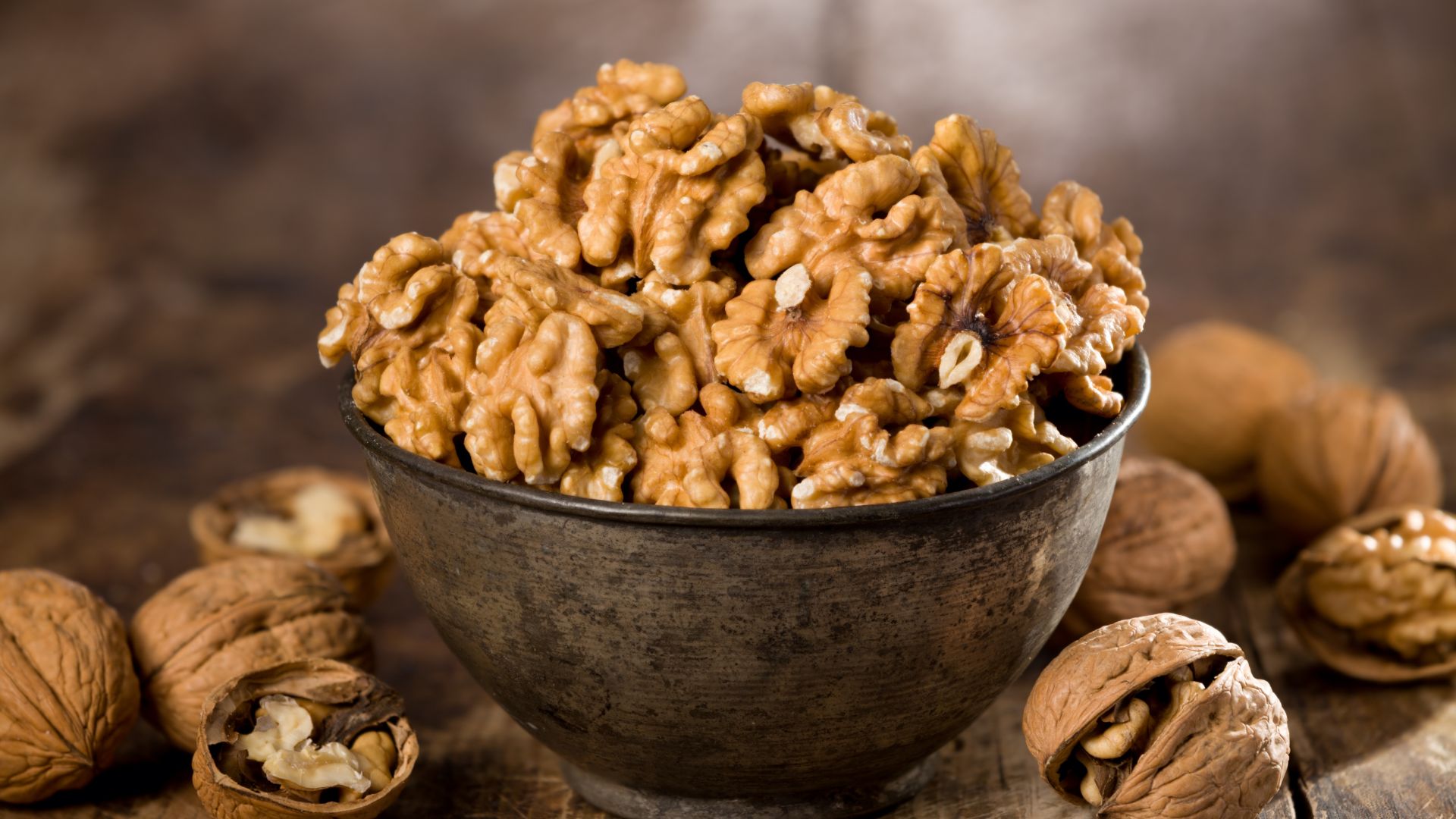
Walnuts have earned a reputation as a superfood, largely due to their profound effects on brain health. This article explores the science behind how walnuts contribute to cognitive function, memory, and overall mental well-being, making them an essential part of a diet aimed at maintaining and enhancing cognitive health.
Table of Contents
Nutritional Profile of Walnuts:
- Omega-3 Fatty Acids: Its are one of the richest plant-based sources of omega-3 fatty acids, particularly alpha-linolenic acid (ALA). Omega-3s are essential for brain health, playing a crucial role in reducing inflammation and supporting the development and function of brain cells.
- Antioxidants: Walnuts are packed with antioxidants, including vitamin E, melatonin, and polyphenols. These compounds help protect the brain by reducing oxidative stress, a key factor in aging and neurodegenerative diseases.
- Vitamins and Minerals: Walnuts are also rich in essential vitamins and minerals like magnesium, copper, folate, and vitamin B6, all of which are important for brain function. These nutrients support neurotransmitter production, nerve signaling, and overall brain metabolism.
How Walnuts Enhance Cognitive Health:
1. Improved Memory and Learning:
-
- Studies have shown that regular consumption of walnuts can enhance memory and learning abilities. The high levels of polyunsaturated fats, particularly omega-3s, support neuron development and improve communication between brain cells. This enhancement of synaptic plasticity is crucial for forming new connections, which is essential for learning and memory retention.
2. Protection Against Neurodegenerative Diseases:
-
- Walnuts can help protect the brain from neurodegenerative diseases like Alzheimer’s disease. The antioxidants in walnuts combat oxidative stress in the brain, which is a major contributor to neurodegeneration. Additionally, the anti-inflammatory properties of omega-3 fatty acids help reduce chronic inflammation, which is associated with cognitive decline. By reducing these harmful processes, walnuts can help preserve cognitive function as we age.
3. Mood Enhancement:
-
- The fatty acids, antioxidants, and micronutrients in walnuts have been linked to improved mental health. Omega-3 fatty acids, in particular, play a role in mood regulation by influencing the production of neurotransmitters like serotonin, which is crucial for emotional well-being. Regular walnut consumption may reduce symptoms of depression and anxiety, leading to a more balanced mood and better mental health.
4. Support for Brain Plasticity:
-
- Brain plasticity refers to the brain's ability to adapt, form new connections, and repair itself. This is critical for learning new skills, adapting to new situations, and recovering from brain injuries. Walnuts may enhance brain plasticity by providing the necessary nutrients for neuron growth and repair, supporting cognitive flexibility and resilience throughout life.
Incorporating Walnuts into Your Diet:
- Daily Consumption: Eating a small handful of walnuts (about 1 ounce or 28 grams) each day provides cognitive benefits. You can easily add walnuts to salads, yogurt, oatmeal, or simply enjoy them as a snack.
- Creative Recipes: Walnuts are versatile and work well in various dishes. Use them to make walnut butter, blend them into pesto, top baked goods, or add them to smoothies for an extra brain-boosting punch. You can also include walnuts in energy bars, granola, or savory dishes for a satisfying crunch and nutritional boost.
Walnuts offer significant benefits for brain health and cognitive function. By regularly consuming walnuts, you actively support memory, learning, mood regulation, and brain plasticity while protecting against cognitive decline and neurodegenerative diseases. Whether you aim to enhance your focus, preserve cognitive function, or improve your overall mental well-being, walnuts should become a staple in your diet. Their rich nutrient profile and versatility make them an easy and delicious way to support brain health throughout life.



Leave a Reply
You must be logged in to post a comment.